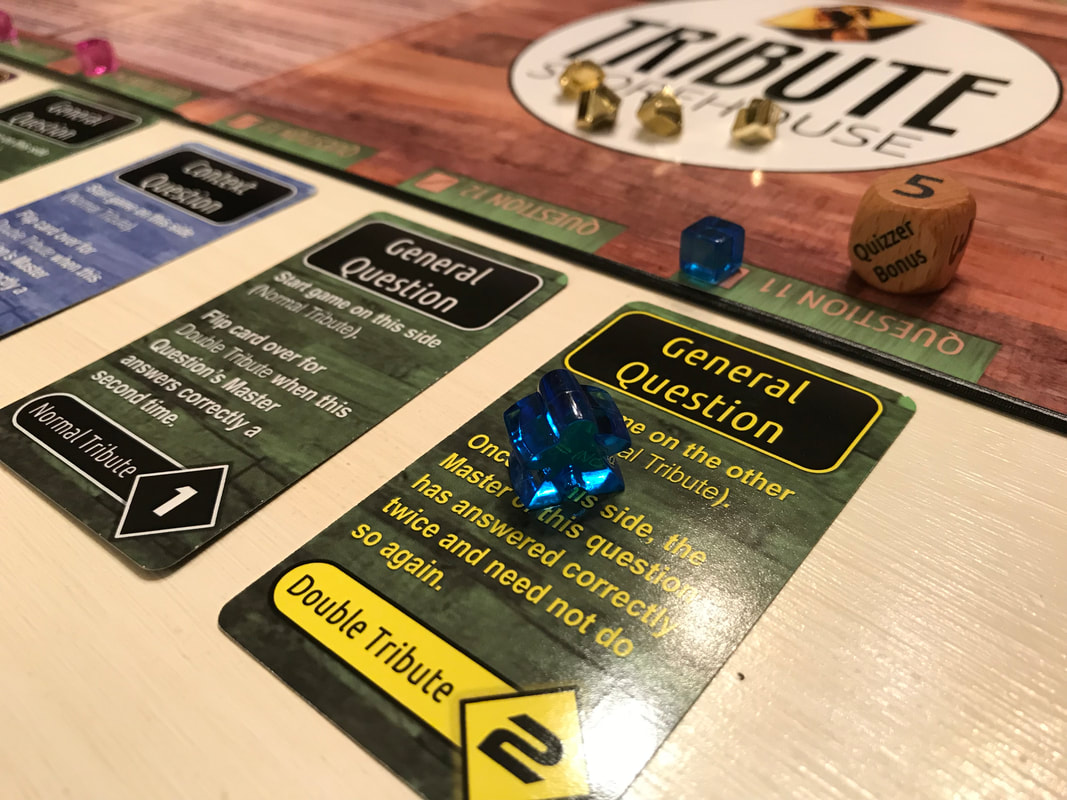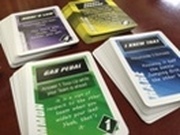A check to their power exists in Teen Bible Quizzing in the form of challenges and rebuttals. The Captain of any team may challenge a Quizmaster’s decision on a Toss-Up question if there is reason to believe that the Quizmaster’s ruling is incorrect. Before the beginning of the next question, the Captain stands and gives a concise argument regarding why the ruling should be reversed. The opposing Captain is then allowed an opportunity to rebut the challenge, explaining why the Quizmaster’s original decision was indeed correct.
Keep in mind, however, that the team is penalized 10 points beginning with their 2nd overruled challenge in a game! So choose your battles wisely!
To better understand not only when but how to make an effective challenge, I consulted with several experienced Quizmasters to get their perspectives: JD Sailors (Quizmaster at District, Field and National competitions), Darrik Acre (Quizmaster and SNU Field Quiz Director), and Matt Thrasher (Quizmaster and Trevecca Field Quiz Director).
Regarding the rebuttal, JD emphasizes listening to the challenge. “Pick any weak logic or area where the challenge is not clear or complete. The ruling of the Quizmaster is supposed to be based on the merit of the challenge and rebuttal. Move the rebuttal to the truth and intent of the Scripture.”
So, what are the signs or conditions when challenging may be worthwhile? Here are some pro tips from these Quizmasters:
WHEN TO CHALLENGE
- When you disagree with the ruling and think the answer was insufficient/sufficient for the type of question. “If there has already been an overruled challenge, weigh the merits of your challenge against the potential loss of points on another overruled challenge,” cautions Darrik.
- The Quizmaster waits the full thirty seconds and then rules “correct”. “This may mean the QM was waiting for more information or clarification. If you can supply a better or more complete answer, do so in your challenge and explain why it is important to the answer,” says JD.
- The Quizmaster makes the ruling after considerable thought or consultation with the Content Judge. Sometimes the decision is to give the quizzer the benefit of the doubt (“innocent until proven guilty”) and leave it up to the opposing team to decide whether or not to challenge that decision. In these cases it is a good idea to ask for the question and answer on the page.
- The Quizmaster’s tone or words indicate they are being lenient (“Yeah, I’ll take that.” “Sure, why not?” “Close enough.”). This signals that the given answer isn’t exact and may be open to a challenge.
- When the reversal of a ruling could greatly affect the competitive outcome of the quiz. An example of this would be if a team member will error-out on a ruling that could be contested in any way – especially if it happens early in the match.
WHEN NOT TO CHALLENGE
WHAT TO DO AND SAY WHEN CHALLENGING
Be respectful in your tone, words, and body language when addressing the Quizmaster or referencing the other team. Be concise. Speak with confidence and boldness. Look at the Quizmaster when talking.
To help you formulate a coherent argument, remember this acronym: STOP (as in, “Stop! I want to challenge!”)
- Situation: Clarify that you are challenging the ruling of the answer. This is important because ‘appealing’ the question is a different process.
| Example: “I wish to challenge the previous answer.” |
| Example: “When asked, “Who were idolaters?”, the answer given was ‘our ancestors’, but the verse for that question says some of our ancestors were idolaters.” |
| Example: “By leaving out ‘some’ in the answer, the implication is that ‘all’ of our ancestors were idolaters, which contradicts that passage and incorrectly answers the question.” |
| Example: “Since the given answer is incomplete and misleading, I feel that the original ruling should be reversed.” |
WHAT NOT TO DO OR SAY WHEN CHALLENGING
- Don’t criticize the quizzer or the officials for what they said or ruled. “Do not challenge the integrity of the quizmaster, or say or insinuate that the quizmaster has prejudice or favoritism toward one team or quizzer,” adds JD. Instead, focus on the technicalities of what was said.
- Do not quote verses incorrectly or assert facts that are not facts.
- Don’t ramble on and on.
- “In your rebuttal,” Matt suggests, “do not say ‘his challenge was erroneous and you should deduct points.’ That is up for the officials to decide.”
REBUTTALS
- Situation: Clarify how you are defending the ruling of the original answer.
| Example: “The question asked ‘Who were idolaters?’, which is exactly what was answered. Our ancestors. |
| Example: “If the complete answer required was ‘some of our ancestors’, then the question would have asked ‘How many were idolaters?’ However, that is not what was asked. For this question, ‘some’ is not necessary to be in the answer. |
| Example: “Paul’s message in that particular passage was to provide warnings from Israel’s history to the church in Corinth so they don’t repeat the mistakes made by their ancestors. How many is not the focus of the question, it is 'who' became idolaters that was asked. |
| Example: “Since the given answer matches the question that was asked, I feel the original ruling should stand. |
| About these Quizmasters: Darrik Acre has served as a Quizmaster for 14 years, dedicating the majority of his participation in quiz events to serving as an official over the last five years. Darrik is the SNU Field Quiz Director and has served as a quizmaster at all levels, except for when he is coaching his SNU Field teams at competition. Matt Thrasher has been a quizmaster for 20 years at the District, Field and National levels and is currently the Trevecca Field Quiz Director. JD Sailors has been a Quizmaster for 35 years at the District, Field, and National level. He has been a Quizmaster at Q, NYC and at General Assembly. | Memorable stories while Quizmastering: Darrik: On an “According to” question, a captain challenged the other team’s answer of “Lord” because the verse had “the Lord.” They were taking the exacting nature of an “According to” question to a whole new level with their challenge! Matt: The “According to” question had to do with Paul saying that you were not yet ready for solid food, but just milk. The quizzer got up and somehow said that you should eat milk because you’re not ready to drink solid food. The captain got up and said that while this was an unconventional way of consuming nutrients, it was possible. Milk could be frozen and then chopped up and eaten. Hamburgers could be pureed in a blender to drink. So the wording was not important and the challenge should be accepted. Matt: A funny appeal occurred at the TN Invitational in the late 1990’s. As a quizzer was standing, thinking, a group of girls came down the hallway singing (rather loudly) “The Hills are alive with the sound of music…” The quizzer looked at the door, sighed, and sat down. After the bonus, she stood up and said, “I would like to appeal. It’s not that they were singing, I mean, everyone loves the Sound of Music. But they were trying to harmonize and they were really bad… really off key. Nobody can think when that is happening. You gotta admit I deserve a redo after being put through that torture.” |





 RSS Feed
RSS Feed